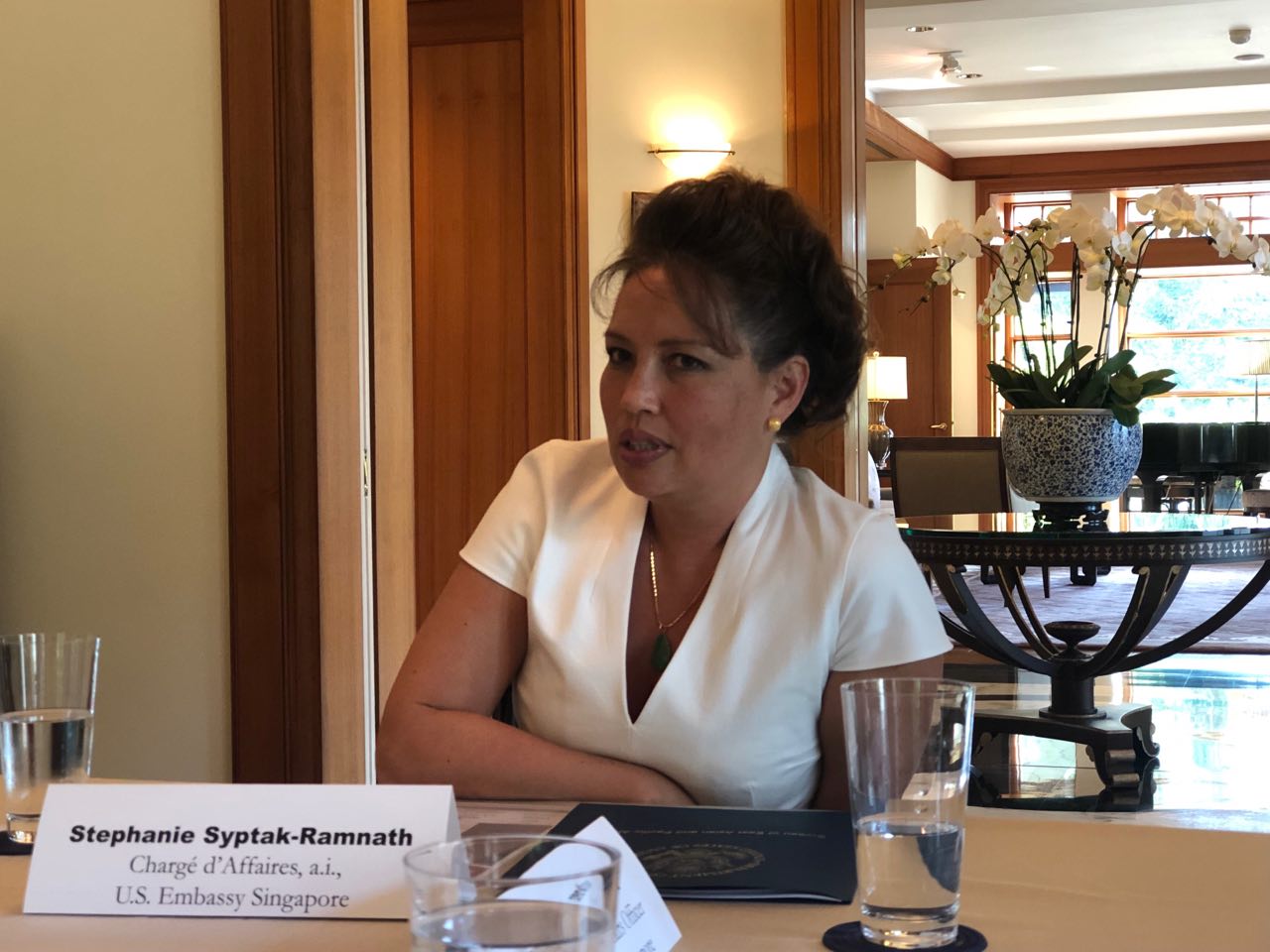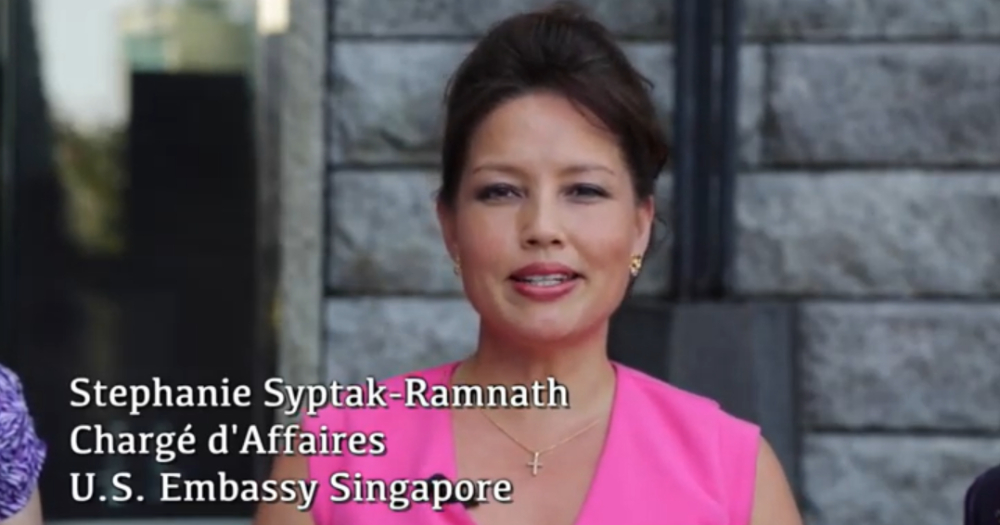The United States is not asking any country to choose between China and itself, but wants the rest of the world to decide what is best for their own interests, said Stephanie Syptak-Ramnath, the Chargé d'Affaires at the U.S. Embassy in Singapore.
Not asking anyone to choose between both sides
Speaking at a media roundtable with both local and foreign journalists on Friday, July 12, Syptak-Ramnath said the U.S. understands the concerns that countries might have when it comes to the perception of having to choose between the two major powers, particularly in the midst of the ongoing trade and technology dispute.
 Photo by Kayla Wong
Photo by Kayla Wong
But she said the U.S. is not asking anyone to take a side with the U.S., or to even take a side against China.
Instead, the U.S. is asking their partners and friends to decide for themselves what kind of world they want to live in.
Syptak-Ramnath said:
"Do you want to live in a world of basic international rules and law, and do you want a place where you are able to choose for yourself what your own destiny is?
Because that's what the U.S. wants.
We want to have a level playing field for countries to be able to decide what's in their best interest and for companies to be able to do business and make the choices necessary to be successful.
So I would argue that the U.S. is not asking any country to make a choice between us and China. What we're asking is for countries to think about how they envision their future and what is the best world order for them to be successful moving forward."
Syptak-Ramnath, who will be leaving Singapore in two weeks' time, has been stationed here for the past three years since the U.S. Ambassador to Singapore Kirk Wagar left in 2016.
The Trump Administration has yet to send an ambassador to Singapore since then.
The future of 5G
Syptak-Ramnath also addressed the concerns that countries face when it comes to the hard decision of whether or not to involve Huawei in their local 5G infrastructure development.
Saying that it is a decision that every country has to make, Syptak-Ramnath said what the U.S. is trying to do is to "ask countries to think very carefully about the choices that they're making".
And then once they make their choice, the U.S. respects that.
She said:
"We're not here to tell Malaysia, no you can't use Huawei.
If Mahathir has decided that that's the appropriate path for his country, then we as the U.S. will have to respect the sovereign decision of every country to decide what's best for their citizens."
Best to have discussions now
She said the only way countries can avoid this bifurcation is by starting to have the discussions now, before making the decisions.
She added:
"If the U.S. sees the security threat we will be remiss in not sharing that with our partners, with whom we share such close partnerships.
And our companies have to feel secure with doing business as well.
So it's going to be for every government in the region to decide what's the best system for them."
While acknowledging that it is hard to predict what the future holds, Syptak-Ramnath said countries will have to think "very carefully", and understand that the U.S. is saying "very clearly" they will not allow Huawei to work in their national security software:
"If you're sharing that software with us, you're going to have to deal with that requirement as well."
U.S. does not fear competition
Syptak-Ramnath wrote in her recent thank you letter to Singapore that the U.S. does not fear competition.
In fact, she said it is in the Americans' DNA to "embrace opportunities for partnerships" with both their allies and competitors.
Her piece was published in response to Ambassador-at-Large Tommy Koh's "birthday letter to America", in which he wrote that the U.S. now faces the possibility of being overtaken by China for the first time since the end of the Cold War.
U.S. an indispensable partner to Singapore
Syptak-Ramnath highlighted the robust bilateral ties between Singapore and the U.S., saying the two countries cooperate in three main areas: Security (both law enforcement and military), economic relations, and people-to-people exchanges.
The Chargé d'Affaires also said Singapore and the U.S. have been cooperating for decades since our independence, and that is why she cannot see how the relationship between both countries will change at any point.
In fact, she said the U.S.-Singapore partnership has lasted for almost two centuries -- the first American consul-general to colonial Singapore was appointed on July 4, 1836:
"I only see us growing stronger every day, and doing more together every day, in the key areas that Singapore is interested, like counter-terrorism, cybersecurity, economic growth, trusted supply chains.
We are the indispensable partner in all of those areas to Singapore.
I think we've built a foundation of trust that will take us into the future."
Top image via singaporeusembassy/YouTube
If you like what you read, follow us on Facebook, Instagram, Twitter and Telegram to get the latest updates.
